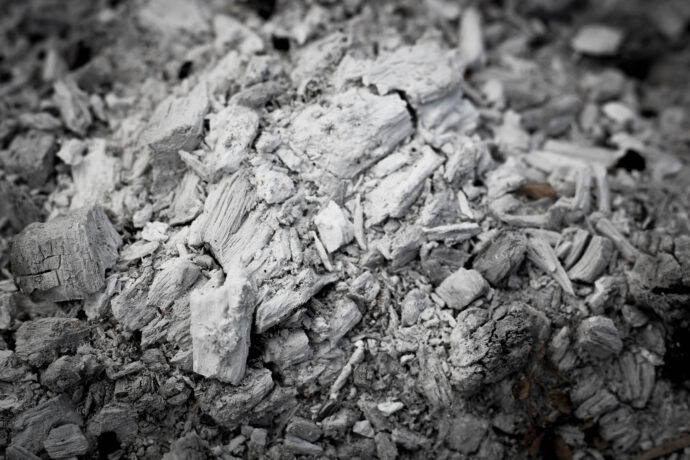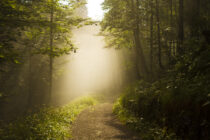The church is preparing itself to enter the season of Lent—a time of self-reflection, fasting, and self-denial. Lent’s dominant image is the temptation of Jesus in the desert, and the people of God are, in imitation of our Savior, called into the desert to face our own temptations.
Even as Lent quickly approaches, so many of us in the West feel as though Lent has already been our constant companion the past few years. Declining churches, dwindling budgets, lost social influence, and crumbling structures have left us wondering what will be left when we emerge from the desert. Christianity in the West enjoyed a long and prosperous summer. Our pews filled with little effort, and our sermons were accepted with eagerness. Buildings sprang up, budgets were stable, and there seemed no end in sight. Though, as these things go, summers turn into fall—warmth replaced by biting frost—and our ecclesial summer faded into the darkening days of autumn, followed quickly by winter.
Six years ago, my family and I made the decision to pastor a small church in Napa, California. The Napa Valley, well known for its wine industry, is a region nestled inside the Howell, Palisades, Vaca, and Mayacamas mountains. Filling the roughly 789 square miles are more than 400 wineries with that boast more than 45,000 acres of vineyards.
Like all farming communities, there is a deep seasonality to all that happens here. Spring brings new life. Vines that were pruned during the winter season begin to wake from their slumber. Shoots slowly trace their way across wire trellises, and it doesn’t take long for the blooms to show. During the summer, the valley alternates between hot days and cool nights. During these temperature swings, the shape and character of the grape are formed. The swing between hot and cold is what creates the powerful flavor in each grape.
As I’ve lived here and talked with those who care for the vines, I’ve learned something important. Though spring and summer—filled with blooming flowers, sunshine, and green vines bursting with grapes—are the easy seasons to love, fall actually brings the magic. In those late-autumn months, when the grapes are harvested, pressed, and laid to rest in their French-oaken graves, the character of the wine is formed.
In many ways, Lent is the autumn season in the liturgical calendar. It is a natural time for us to reflect on the seasonality of life, the soul, and the church. There is something powerful about living in the midst of a dying world that calls us to reflect on our imperfections and our own mortality. As Nazarenes, this season can be difficult. We are a denomination born of the fires of renewal. Embedded in the DNA of our people are long-cherished memories of powerful revivals, exponential growth, and miraculous moments of deliverance. These revivals birthed generations of Christians devoted to making the world a more holy place. Our buildings stand as monuments to those powerful moments.
There is something powerful about living in the midst of a dying world that calls us to reflect on our imperfections and our own mortality.
But, as pastors gather at district assemblies, looking at relentlessly diminishing attendance, giving, and membership numbers, those days of revival can seem like a distant memory. Staring at the cold, hard facts, we find ourselves wondering if there’s any truth to the question plaguing so many: are the most powerful days really behind us? Even more timidly we ask: does God still turn water into wine?
The answer to this question is, of course, a resounding yes. Since the beginning of time, God has been about the work of redeeming all of creation, and God will not stop until we see a new heaven and new earth. The God we serve completes what God begins. The problem is that we can easily forget that we cannot live in those summer months forever. In the midst of the holy fire, explosive growth, and miraculous moments of deliverance, we have forgotten that some of the most important work is done in the darkness of the grave. Christians are a resurrection people, but we easily forget that resurrection must be preceded by death.
The late author Eugene Peterson, reflecting on death, powerfully wrote in a 2005 interview with Christianity Today, “That’s the whole spiritual life . . . learning how to die. And as you learn how to die, you start losing all your illusions, and you start being capable now of true intimacy and love.” We need death because death calls us to examination. To ponder our own mortality reminds us that we are not God and that we are not to try our hand at divinity. Surrender, not dominance, is the posture we are invited to take. Death, not immortality, is the cup from which we drink. The cross, not the sword, is the dominant image of our lives.
In a day of anxious numbers, fearful budget meetings, and social change, it’s easy to do what we can to control the outcome, doing whatever possible to maintain some semblance of control and influence. But Lent, with its call to surrender and death, leads us down a different path.
As we enter Lent this year a deeply divided nation and an equally divided church—tied to political partisanship, hammered by one moral scandal after another, and unsure of what we agree on anymore—I can’t help but wonder if we need to make ourselves at home in this wilderness, at least for a season. What if the Holy Spirit is calling the church to embrace a painful but necessary season of death—without scapegoating, without casting blame? What if our call is to walk the lonely path to the cross, allowing ourselves to become an image of our crucified Savior for all the world to see? Instead of jumping straight to revival, what if we’re supposed to allow ourselves first to be buried, choosing to surrender our rights for the sake of others? What if it’s our death that leads to life?
There’s one part of the harvest—my favorite part, actually—that I haven’t mentioned. As autumn kicks into full gear and grapes come in and the wine presses begin to run, the entire valley is filled with the thick, sweet smell of grape juice. The grapes—which have been growing and maturing and are now being pressed and poured out—are giving one final gift to the world: a beautiful fragrance.
This fragrance makes me think of Polycarp. In the early church, few stood as prominently as Polycarp. A disciple of the apostle John, Polycarp was one of the last remaining links to the original apostles and to Jesus. When he was eighty-six, Rome put a price on Polycarp’s head. Eventually he was taken into custody. As many both before and after him would do, Polycarp stood before the Roman proconsul and, in the face of great suffering, steadfastly refused to renounce Christ. He famously declared, “Eighty-six years I have served him, and he never once wronged me. How, then, shall I blaspheme my King who saved me?”
Realizing Polycarp would never recant, the governor condemned him to die by fire. Polycarp walked voluntarily to this death, even telling the guards they need not nail him to the stake because he would not resist death. He surrendered himself fully to death. Guards tied Polycarp tied to the stake anyway, placed wood below and around him, and then lit his body on fire.
Christian tradition passed down through generations describes his final moments as if his body were not burning flesh but were gold or silver being refined in the fire. And it describes also a sweet aroma in the air, either of incense or a precious spice. The fire ultimately didn’t consume Polycarp, and the executioners were forced to put him to death by the sword.
Church, as we find ourselves here, in these Lenten (autumn) days, with winter looming on the horizon—instead of fighting against the seasonality of all things, may we offer ourselves to God, pressed on all sides and poured out for the sake of the gospel, surrendering ourselves to the death yet to come. For in our death, the world will witness the beautiful aroma of the coming kingdom of God.
As Henri Nouwen powerfully reflects, “We will all die one day. That is one of the few things we can be sure of. But will we die well? That is less certain. Dying well means dying for others, making our lives fruitful for those we leave behind. The big question, therefore, is not ‘What can I still do in the years I have left to live?’ but ‘How can I prepare myself for my death so that my life can continue to bear fruit in the generations that will follow me?’”








2 Comments
Nicole Cotton
Powerful! Blessed by these words today.
Doug Manson
Powerful.